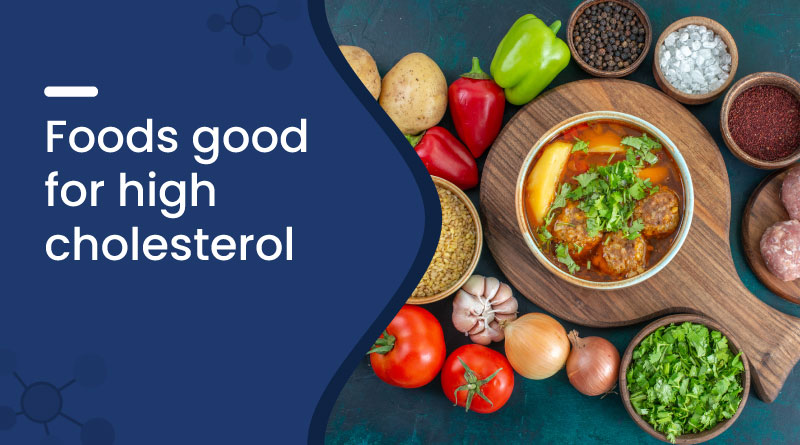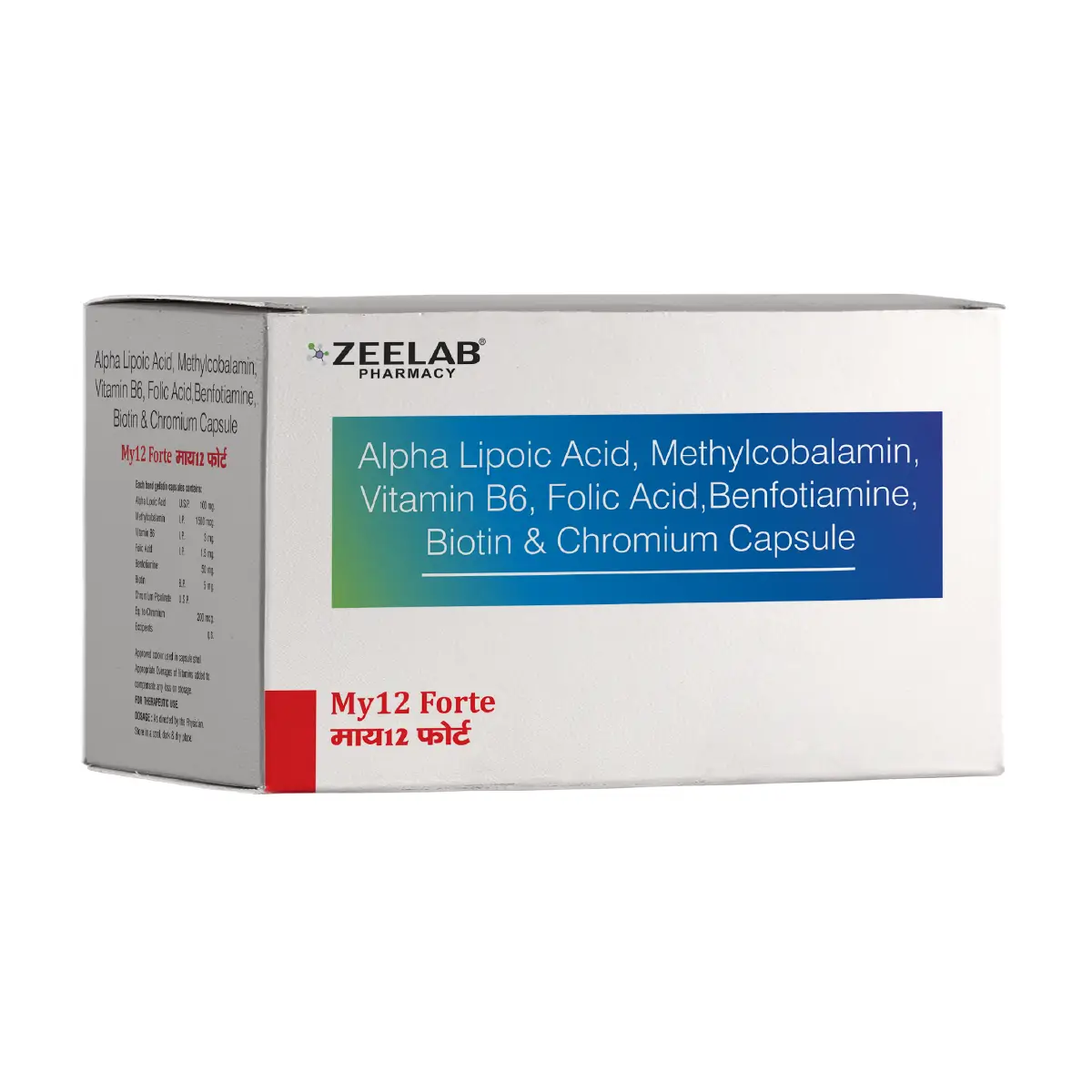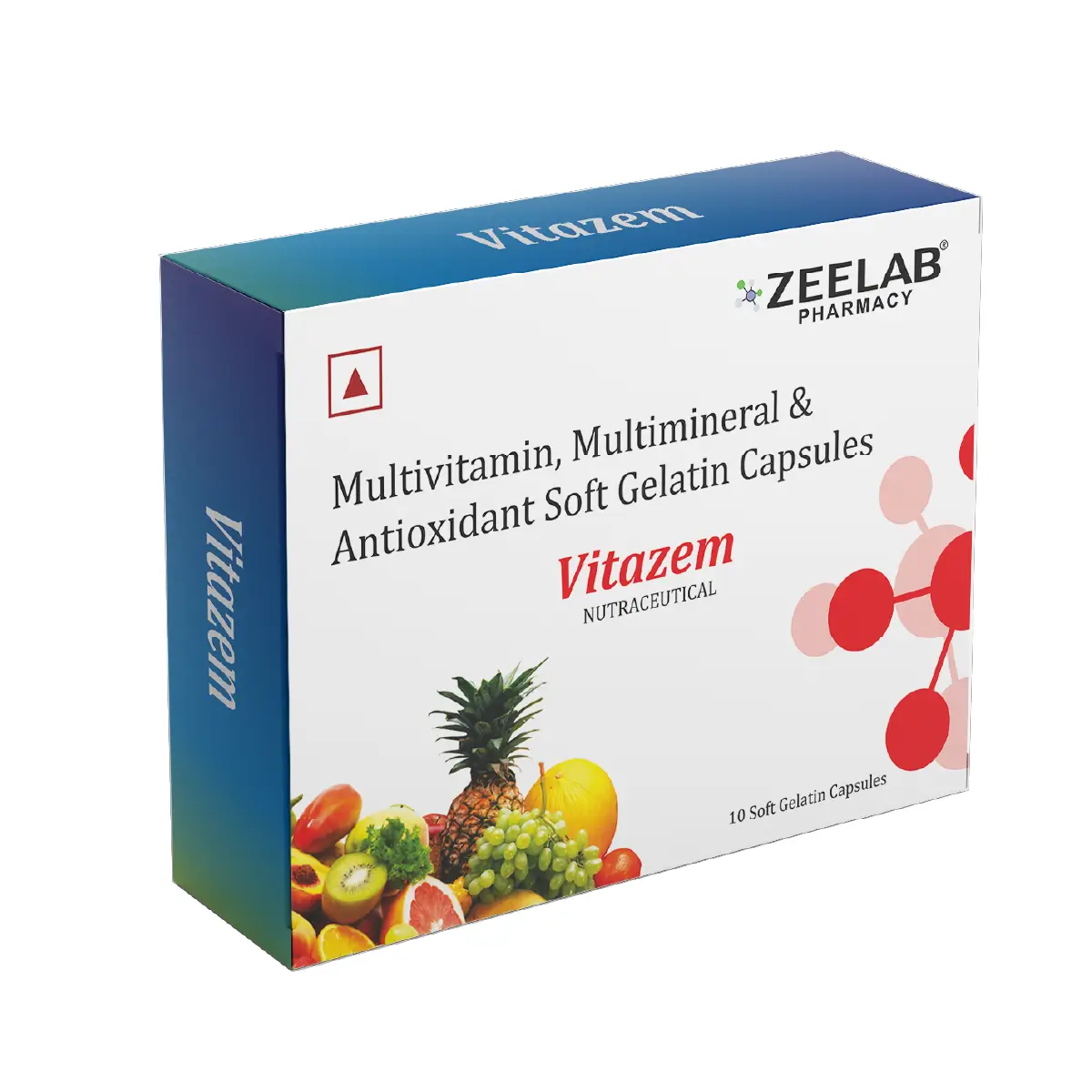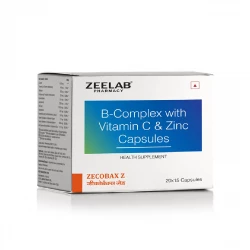Foods Good for High Cholesterol


High cholesterol is a hidden factor contributing to many heart diseases. Without showing any symptoms, it quietly builds up in the arteries, leading to fatal health issues like a heart attack or stroke. Choosing good lifestyle habits and a better diet helps manage cholesterol levels. Making the right food choices each day can help protect your heart. Through this blog, let’s explore the best foods for high cholesterol management.
Cholesterol and Its Types
Cholesterol is a type of fatty substance found in the blood that helps in several body functions. It is mainly of two types:
- Low-density Lipoprotein (LDL): Also known as “Bad Cholesterol”. When high in levels, it can clog the arteries and increase the risk of a heart stroke.
- High-density Lipoprotein (HDL): Also called “Good Cholesterol”. It helps in removing bad cholesterol from the blood.
Best Foods to Lower High Cholesterol
Here is a list of some of the most beneficial foods that can help in the management of cholesterol levels.
Fiber-Rich Foods
- Oats: A bowl of oatmeal for breakfast can be a great start.
- Barley: Contains beta-glucan, which is effective in lowering LDL.
- Beans and Lentils: Great sources of fiber and plant-based protein.
- Fruits like apples, oranges, and berries: Loaded with soluble fiber and antioxidants.
Healthy Fats
- Avocados: Rich in monounsaturated fats that help lower bad cholesterol.
- Nuts (especially almonds and walnuts): High in omega-3 fatty acids and fiber.
- Seeds (chia, flaxseed, sunflower): Offer heart-healthy fats and plant sterols.
Omega-3 Rich Foods
- Fatty fish (salmon, mackerel, sardines): Best consumed 2–3 times a week.
- Flaxseeds (Alsi) and Chia seeds: Great plant-based sources of omega-3s.
- Soy-based foods (tofu, soy milk): Help lower LDL when used as a meat replacement.
Antioxidant-Rich Foods
- Berries (blueberries, strawberries): Contain polyphenols for heart health.
- Leafy vegetables: Spinach and Kale lessen cholesterol absorption in the gut.
- Green tea: Contains catechins that help lower LDL and support metabolism.
Whole Grains
Compared to refined grains, these are richer in fiber and vital nutrients. They help reduce total and LDL cholesterol while supporting digestion.
- Brown rice
- Quinoa
- Whole wheat bread and pasta
Plant Sterol and Stanol-Enriched Foods
- Fortified foods: Some vegetable oils, spreads, and juices are enriched with sterols and stanols.
- Legumes: Naturally contain small amounts of plant sterols.
What Type of Foods to Avoid?
Just as some foods lower cholesterol, others can raise it. Limit or avoid:
- Saturated Fats: Commonly present in red meat, full-fat dairy products, and butter.
- Sugary drinks and baked goods: Soda, fruit drinks, cake, cookies, etc.
- Trans fats (partially hydrogenated oils): Found in baked and fried foods.
- Processed foods and fast food: Packaged snacks, burgers, pizza, etc.
Supplement for Lowering High Cholesterol
| Product Name | Use |
|---|---|
| Vitazem 5G Softgel Capsule | Helps manage high cholesterol levels with Omega-3, Garlic, and Ginseng; supports heart and lipid health. |
Conclusion
Managing high cholesterol doesn’t have to mean strict diets or giving up everything you enjoy. By incorporating more fiber-rich, omega-3-packed, and antioxidant-laden foods into your meals, you can naturally support your heart and overall health. Small daily changes can add up to big health improvements over time.
Frequently Asked Questions (FAQs)
Q. What is bad cholesterol?
A. Low-density Lipoprotein, also known as bad cholesterol, is a type of fatty substance that results in the clogging of arteries, leading to the risk of heart issues.
Q. What should I eat to lower cholesterol levels?
A. To lower the cholesterol levels in the blood, you should eat foods rich in fiber, omega-3, and antioxidants.
Q. Can I eat non-vegetarian food if I have high cholesterol?
A. Yes, you can eat lean meat. Avoiding red meat can help reduce saturated fat intake—fish makes a better choice, due to its omega-3 content.
Q. Is olive oil good for high cholesterol?
A. Extra virgin olive oil is rich in monounsaturated fats and antioxidants, which help improve HDL levels.
Q. Does a high sugar intake have an impact on blood cholesterol?
A. Yes, excessive sugar intake can increase bad cholesterol and decrease good cholesterol levels in the blood.
Alpha Lipoic Acid (100mg) + Methylcobalamin (1500mcg) + Vitamin B6 (3mg) + Folic Acid (1.5mg) + Benfotiamine (50mg) + Biotin (5mg) + Chromuim (200mcg)
10 Capsules In 1 Strip
Lecithin (10 mg) + Lysine (5 mg) + Arginine (30 mg) + Glutamic Acid (20 mg) + Vitamin A (600 mcg) + Beta Carotene (2 mg) + Vitamin B1 (1.2 mg) + Vitamin B2 (1.4 mg) + Vitamin B6 (2 mg) + Vitamin B12 (0.001 mg) + Vitamin C (40 mg) + Vitamin D3 (0.005 mg) + Vitamin E (10 mg) + Biotin (0.04 mg) + Lycopene (0.5 mg) + Folic Acid (0.1 mg) + Niacin (18 mg) + Pantothenic Acid (4.5 mg) + Calcium (50 mg) + Phosphorus (40 mg) + Chromium (0.033 mg) + Copper (1.35 mg) + Iodine (0.15 mg) + Iron (10 mg) + Magnesium (50 mg) + Manganese (2 mg) + Molybdenum (0.025 mg) + Potassium (2 mg) + Selenium (0.04 mg)
10 Capsules in 1 strip
Lysine (50 mg) + Vitamin B1 (1.4 mg) + Vitamin B2 (1.6 mg) + Vitamin B6 (2 mg) + Vitamin B12 (0.001 mg) + Vitamin C (25 mg) + Folic Acid (0.1 mg) + Niacin (18 mg) + Pantothenic Acid (5 mg) + Copper (1.7 mg) + Selenium (0.04 mg) + Zinc (17 mg)
15 Capsules in 1 Strip
Recent Blogs
Disclaimer : Zeelab Pharmacy provides health information for knowledge only. Do not self-medicate. Always consult a qualified doctor before starting, stopping, or changing any medicine or treatment.
Related Products
Need Medicines Quick?
Share location to check quick delivery serviceability.
Change Location
Location Access Needed
Your location appears to be blocked or disabled.
Please enable the location from your browser or
device settings.

₹ 0
0
Items added
Quick Links
Categories
Our Policies
2026 Copyright By © Zeelab Pharmacy Private Limited. All Rights Reserved
Our Payment Partners

 Added!
Added!
|
|
















